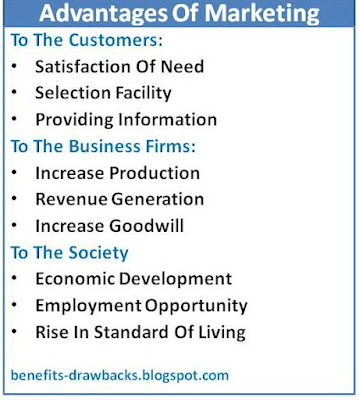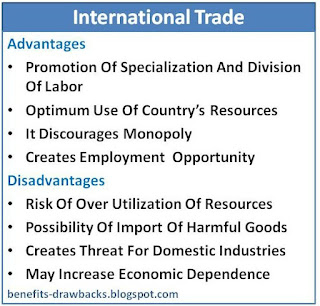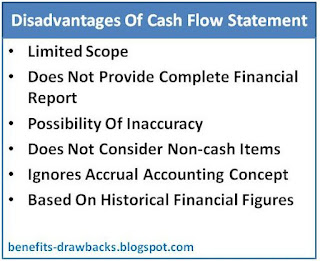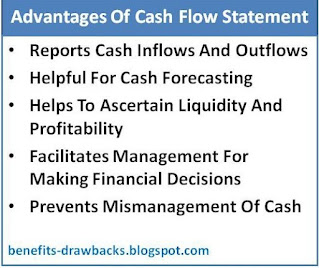Roles, importance or advantages of marketing can be described from customer's, business firm's and society's point of view as follows:
Benefits Of Marketing To Customers
The main advantages of marketing to customers can be studied as follows:
1. Need Satisfaction
As we know that the main objective of marketing is to satisfy customers by producing and supplying goods and services as per their needs or wants. So, marketing is important to fulfill needs and to provide satisfaction to the customers.
2. Providing Information
Marketing uses different methods and techniques such as advertising, sales promotion, publicity etc. to inform potential customers about the quality, taste, price, using methods and uses of products and services. So, it helps to provide information to the customer before buying goods.
3. Selection Facility
In market, we can find similar types of products produced by different firms. Marketing helps to identify the brand and select products according to their needs and interest.
4. Improve Lifestyle
Marketing promotes better lifestyle by providing quality goods and services at affordable price. So, it helps to improve the living standard of the people.
Benefits Of Marketing To Business Organizations
Marketing is important or advantageous for business firms because of the following reasons:
1. Increase Production
Business firms uses different marketing techniques (advertising, sales promotion, public relation etc.) to enlarge the market. It helps to find new market and new demand for their products. So, marketing helps to increase production.
2. Revenue Generation
In any business company, there are different departments or functional areas such as production department, human resource department, accounting department, administrative department and marketing department. Among these departments only marketing generates revenue for the company. So, marketing activities are important to earn profit for the firm.
3. Planning And Decision Making
Marketing provides useful data and information about market, customers behavior, competitors, government policy etc. to the management. So, it helps the manager in planning and decision making process.
4. Increase Goodwill And Image
Marketing always tries to satisfy customers by providing goods and services according to their needs and wants at lower price. Satisfied customers become loyal to the company which helps to improve goodwill and image of business firm.
Advantages of marketing to the society or nation can be explained as follows:
1. Economic Development
Marketing promotes productivity and efficiency which leads to maximum utilization of resources (natural resources, physical resources, finance resources etc.) in the country. Proper utilization of resources, better productivity and efficiency help to increase national income which helps in the economic development of the nation.
2. Employment Opportunities
Marketing promotes industrialization in the country. It generates employment opportunities in different ares such as research and development, production, promotion, distribution etc. So, it is very important to create employment opportunities in the country.
3. Rise In Standard Of Living
Marketing provides better quality products at lower price to the customers which helps to improve their lifestyle. It provides employment opportunities and helps to break vicious poverty circle in the society. So, it raises the living standard of the people.
4. Utility Creation
Marketing creates time utility (storage), form utility (product development), place utility (transportation), and possession utility (exchange) of products or services.




































